By Lucy Komisar
May 12, 2020
German Press Council rejects Browder complaint against Der Spiegel
This starts my interview on Fault Lines today, which begins 2hrs/31minutes in.
First, the revelation yesterday that the German Press Council had rejected the complaint by William Browder, a former billionaire investor in Russia, against German reporter Benjamin Bidder and newsmagazine Der Spiegel. Their November investigative report nailed Browder as a fraudster and his death of my accountant Magnitsky story as fake. The decision was made in January, but Browder didn‘t reveal it and Bidder only just found out about it. The ruling is addressed to Browder’s partner, Ivan Cherkasov, in London.
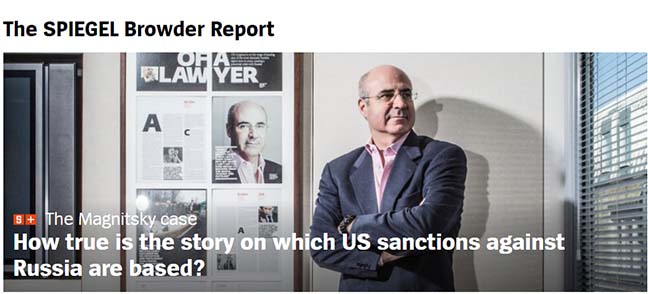
The decision cites Browder‘s assertion “the article contains serious factual errors. The [reporter] wrongly claims: Sergei Magnitsky was not deliberately killed; Sergei Magnitsky had not testified against the officials of the Russian Interior Ministry; Sergei Magnitsky was not a lawyer; Major Pavel Karpov was not involved in a fraud Sergei Magnitsky denounced.”
It says, “The actual factual basis at the time of reporting becomes sufficiently clear. The position you represent is at least not to be regarded as a proven and therefore indisputable fact, so that the present critical examination of this account of the events that led to the death of Sergei Magnitsky is not to be objected to.” Meaning the reporting is based on fact, Browder‘s position is not proved, and there can be no objection to Bidder‘s examination of events leading to Magnitsky death.
The ruling notes, “The article also shows that Hermitage Capital had the opportunity to comment in advance.”

“There is no objection to the statement that Sergei Magnitsky was not a lawyer. It may be that Sergei Magnitsky offered legal advice and representation and was allowed to do so under Russian law. For the professional title of lawyer in Germany, however, completion of a law degree is required. Obviously, Sergei Magnitsky did not do that. Therefore, his notice that Sergei Magnitsky (at least according to German understanding (was not a lawyer) was not to be criticized.”
“Overall, we could not find a violation of journalistic principles.”
But the action of the press council has not been reported in the U.S. or UK media. Nor, it goes without saying, was the November Der Spiegel report.
ICIJ director lies as he fumbles about why “investigative” group gives Browder a pass on Panama Papers reporting
From there I discussed the media lockdown on the Browder hoax. And a webinar panel featuring the director and reporters from the International Consortium of Investigative Journalists which received and organized the data of the Panama Papers and has protected William Browder, who had two shell companies, set up by Mossack Fonseca, the company at the center of the data leak.
I was on a webinar in April sponsored by Offshore Alert, a newsletter reporting about offshore fraud for which I have written. I also appeared in panels Offshore Alert sponsored in London and Miami on the Browder hoax.
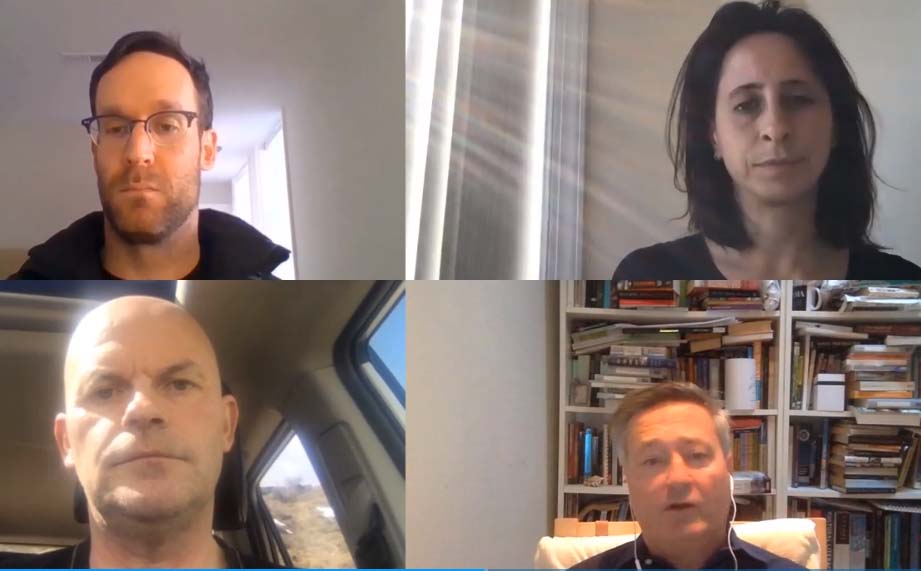
The speakers were ICIJ director Gerard Ryle, in Sydney, and reporters Will Fitzgibbon and Scilla Alecci, in Washington DC.
I sent Offshore Alert owner and webinar moderator David Marchant a question and he used it to ask: Favoritism: has the ICIJ given preferential treatment to anyone whose name appeared in leaks. Or has it been pressured to do so by donors or other outside parties. And one of our attendees, who‘s an investigative report in New York – you might be able to guess who it is – asks why nothing has been written about Bill Browder despite his BVI [British Virgin Islands] firms appearing in the Panama Papers and the fact that he‘s high profile due to his campaign in the name of Sergei Magnitsky. (Start at minute 33 of the video.)
ICIJ director Gerard Ryle: Well, the fact that somebody knows that they‘ve been published is kind of an answer in itself. We have published that information on Panama Papers.
THAT IS NOT TRUE!
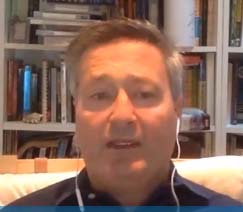
He continues: It‘s really a question of the reporters, did they find anything there of public interest, did they want to follow that story.
Going back to something that Scilla was saying earlier, we have almost 400 reporters around the world. It‘s up to them to decide what‘s important to them. It‘s not up to ICIJ. At no point does ICIJ ever tell any media partner what it should be doing or what it should be investigating. What we‘re doing is we‘re making all the documents available to all the reporters at the same time. And it‘s really up to the reporters to decide what‘s in the public interest?
First: Public interest? When a high-profile individual such as Browder, a key promoter of Russophobia, attacks Putin for a “friend” having Panama Papers companies and he has two himself! And then almost dares reporters to expose him for a hypocrite and a fraud?
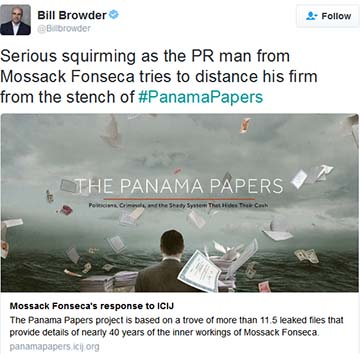
And then Browder put on twitter: “Serious squirming as the PR man from Mossack Fonseca tries to distance his firm from the stench of Panama Papers.” You have to admire his nerve: Attacking his own corporate shell formation agent!
It‘s up to the 400 reporters? I was asking about ICIJ, not partners. But Ryle smoothly reframes the question. Fitzgibbon and Alecci work for ICIJ. Are you saying they make their own assignments? Then, I‘m asking why your reporters didn‘t choose to investigate Browder?
Ryle: Obviously, ICIJ also reports and our focus is entirely on the global story. And we take the best from Brazil, the best from Britain, the best from France and we pull together global stories that we make available to everybody.
Global? Browder promoting the West‘s hostility toward Russia? Is that not global? Browder has promoted Magnitsky Acts in half a dozen countries around the world and is working on more, importantly in Australia.
Ryle: But the fact.…to answer your question. Do we ever pull any names? No, we publish every single name we find. We‘ve even published names of our own donors. So George Soros is in there, Pierre Omidyar, two people who through their foundations give us support. We‘re not afraid of publishing the names. And we weren‘t afraid of publishing Bill Browder‘s name.
But that‘s a lie. ICIJ has not published Browder‘s name in connection with his Panama Papers shells.
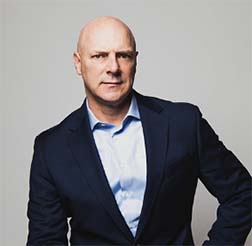
All part of Deep State/media lies aimed at building hostility to Russia
I pointed out that the Browder hoax is part of the narrative of U.S. government and media lies aimed at building hostility to Russia.
Just revealed: Crowdstrike director Shawn Henry, cited as the source for “the Russians hacked the DNC emails,” told the House Intelligence Committee in December 2017 that he he no evidence of how the emails had left the DNC computer! No evidence! The FBI chose not to examine the computer. And politicians and media continued to promote the fake story.
Now look at this.
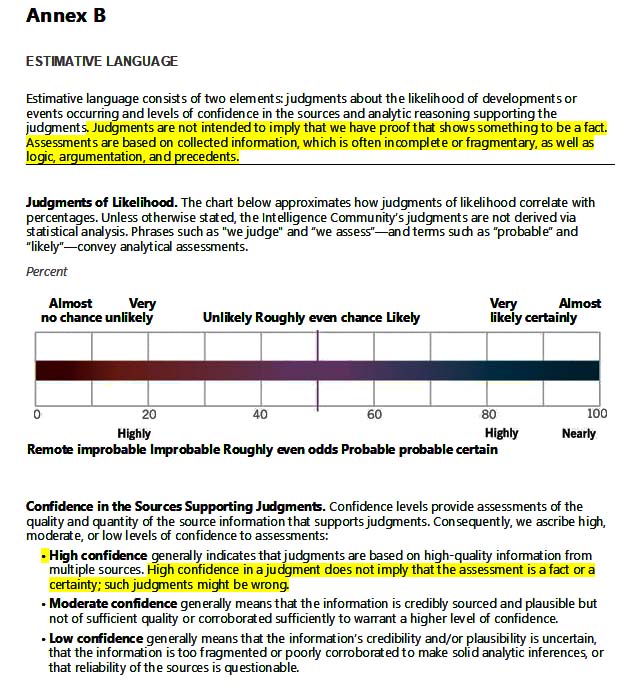
This is the last page of the famous January 2017 report by U.S. intelligence agencies (first said to be 17 agencies, then 3, then revealed that people were hand-picked from three agencies) that declared the Russians had interfered in the 2016 elections. Except this annex on the very last page says, “Judgments are not intended to imply that we have proof that shows something to be a fact. Assessments are based on collected information, which is often incomplete or fragmentary, as well as logic, argumentation, and precedents.
They admit have no proof! Said at the end, which is known as burying the lede. Next time the report is cited by a politician or newspaper, note if the cite includes, they admit they have no proof.
And add this: According to a journalist in Europe: Apparently, Browder called several prominent editors in the country telling them Bidder is a Russian plant and never to publish him. He allegedly told them that the reason he knew Bidder to be a Russian asset is because Bidder’s piece appeared in Russian translation in the Russian press almost immediately after Spiegel published it, meaning that it must have been coordinated with Moscow ahead of time.
There was only one problem with that story: the Russian translation actually came out many days later! It would have taken anyone 30 seconds to check the publication dates. But instead, many did not bother and just believed Browder’s lie. It took Bidder significant efforts to recover his reputation in some German media circles.”
Benjamin Bidder wrote me: “I’m aware of it. At least one editor called me and told me about such a call. The Welt-article kind-of indirectly proofs it as well, I guess. He tried to do the same with Nekrasov when we talked while I did my research. [Andrei Nekrasov made the film “Magnitsky, Behind the Scenes.”] So, I knew what was coming.
We published a long rebuttal then (you probably know it). What else can you do as a journalist to react on such nonsense?
“My impression is that part of his strategy is targeted character assassination against people who challenge his narrative. But I guess I’m a bad target for such attempts because I’ve been always highly critically towards the Putin regime, I covered much of the efforts of the Russian opposition, ran the first interview with Alexey Navalny after he left hospital and currently, and today, I investigate evasions of the Russia-sanctions.”
I just carry on with my work, I guess it speaks for itself.
Ben

